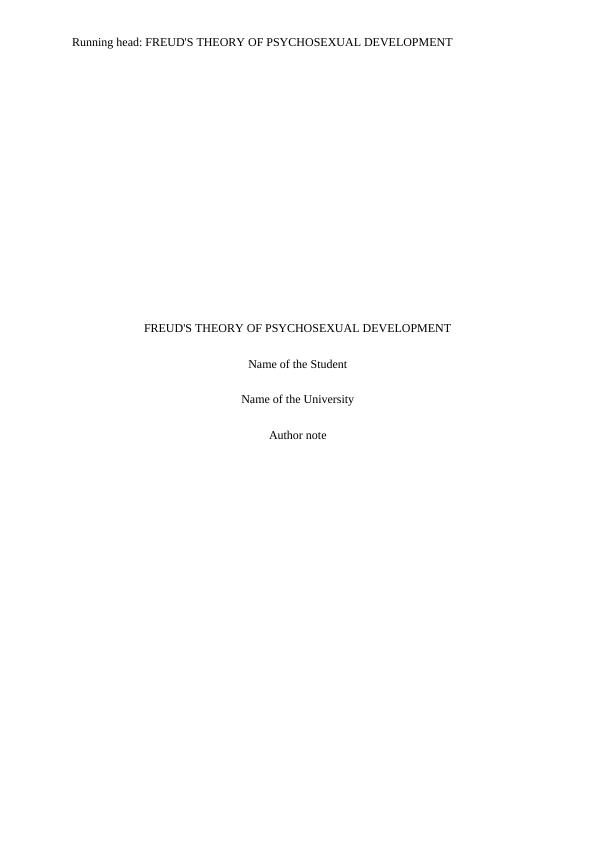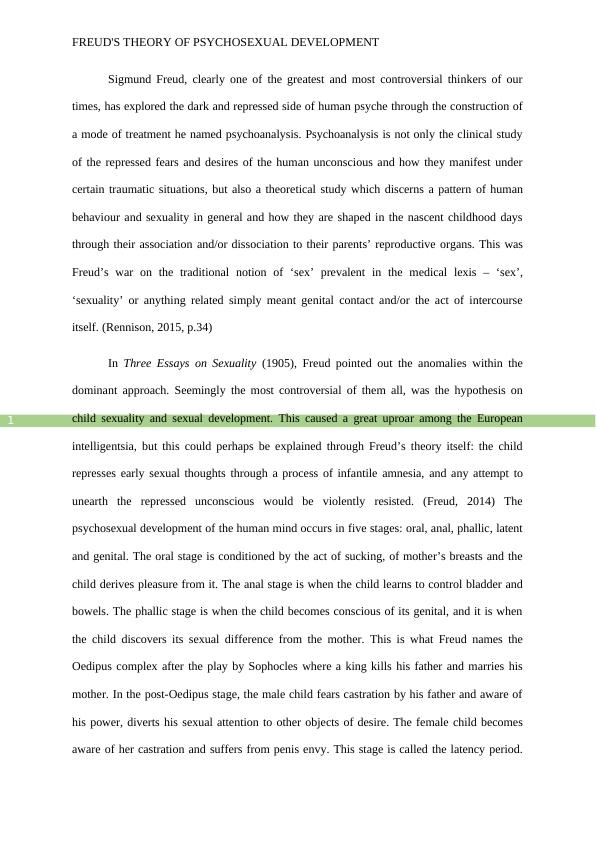Freud's Theory of Psychosexual Development
Added on 2022-11-18
5 Pages735 Words183 Views
End of preview
Want to access all the pages? Upload your documents or become a member.
The Psychodynamic Approach (pdf)
|6
|1399
|510
Sigmund Freud Vs Eric Erikson | Assignment
|10
|1712
|312
Human Development across Lifespan
|7
|1766
|72
Letter to Freud: A Critical Analysis of His Concepts in Unconscious, Psychosexual Stages of Development and Structure of Personality
|5
|1312
|275
Introduction to Psychology: Psychoanalytic Approach and Behavioural Approach
|5
|1384
|267
Psychological Theories on Lifespan Development
|2
|1742
|113


